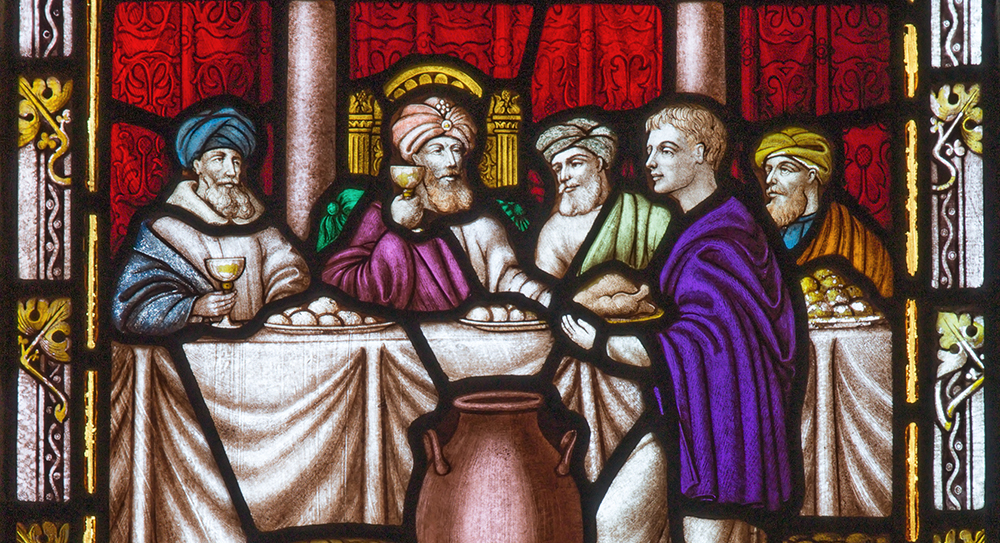Asterius of Amasea (d. c. 400) was the bishop of a city in the region of Pontus, Asia Minor. He was celebrated as a popular, powerful preacher and a faithful, holy pastor to his flock. This excerpt is from his sermon “The Unjust Steward.”
A false conception prevails among us that multiplies our transgressions and diminishes the good we ought to do: We think that all the things we enjoy in this life, we possess as lords and masters. On account of this notion we fiercely fight and compete for our precious “possessions.”
Now the truth of the matter is quite otherwise. For none of those things we have received is our own. Nor do we dwell in this life as absolute possessors and lords as if in a house of our own; but as “aliens and exiles” and wanderers (see 1 Pt 2:11). When we don’t expect it, we’re led where we don’t want to go. And when it seems good to the Lord, we’re deprived of the possession of our wealth.
For this reason, the enjoyment of this perishable life is quite liable to change. Whoever is glorious today is an object of pity tomorrow, eliciting compassion and help. Whoever is prosperous and flourishing in wealth now suddenly finds himself poor, without even bread to support life.
Say you possess an estate, having either inherited it from your parents or purchased it. Recall, if you can, all those who have occupied it before you. Think also about the time to come, and how many will occupy it after you.
Now tell me who owns the house: those who have had it, or those who now have it, or those who in the future are to have it? All of them could claim ownership.
Or think of an inn where you might stay while traveling. There, since you have brought no household goods with you, you are pro-vided with a bed, table and other furnishings. But imagine that, before you can use them as long as you want, another traveler comes in, panting, covered with dust and hard after you, forcing you from the inn and insisting that these provisions are his own — though, in reality, they belong to neither of you.
Such, brothers and sisters, is our life. If anything, in fact, it’s still more transitory than that. So I wonder why people say “my estate” and “my house,” and thus appropriate by an idle syllable things that aren’t theirs, clutching things that belong to others as well.
On stage, no one actor has exclusive right to any given character; any actor may assume it. So is it in the case of the earth and its material things. One after another, people put on earthly things and take them off like garments.
That’s why the apostle Paul says: “The form of this world is passing away” (1 Cor 7:31); “as having nothing, and yet possessing everything” (2 Cor 6:10). For these sayings have this one intent: to remind us that it’s fitting for us to live as creatures of a day, awaiting the signal for our departure.
You Are a Slave
Nothing is your own. You are a slave, and what is yours belongs to your Lord. For a slave has no property that is really his own; naked you were brought into this life.
If you’ve received things that aren’t your own, what responsibilities are incumbent upon you? Give to the hungry, clothe the naked, heal the afflicted, don’t neglect the needy or the outcast at the corners of the streets. Don’t be anxious about yourself, or stop to consider how you’ll live tomorrow (see Mt 6:34). If you obey the Scripture in this way, you’ll be honored by the Lawgiver.
That rich man in Christ’s parable whose land brought forth abundantly was a wicked steward of the earthly life, since in the abundance of his crops he intended nothing useful. Instead, enlarging his gluttony and greed, he planned it all for his own enjoyment, telling himself: “Take your ease, eat, drink, and be merry” (Lk 12:18-19). While he was yet speaking, the death angel stood at his side, to conduct him from the earth.
Only a fool can fail to see: Daily, now one, now another, we too are being removed from our stewardship here. Like St. Paul, then, we must say: “To me life is Christ, and death is gain” (Phil 1:21).

